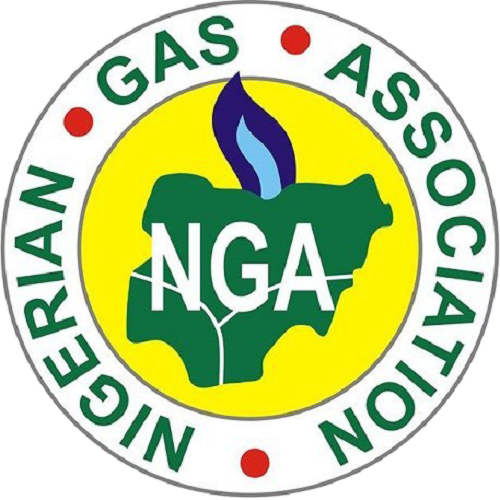The Nigerian Gas Association (NGA) held its first ever Industry Multilogues and the event was hosted virtually in accordance with prevailing safety protocols against the spread of the dreaded coronavirus disease popularly tagged COVID-19.
The first day hosted discussions on “Achieving Consensus Pricing for the Nigerian Natural Gas Value Chain.” While discussions on the second day focused on “The Petroleum Industry Bill – Crystallizing Sector Legislation to Spur Wider Development.”
A third subtopic to the conversations emerged as opinions on building demand capacity inadvertently evoked thoughts on Nigeria’s preparedness to take advantage of the imminent African Continental Free Trade Agreement (ACFTA).
In carefully raising policy agenda in her welcome address, the NGA President, Mrs. Audrey Joe-Ezigbo stated: “We recognize and continue to advocate for a deepening of our domestic gas markets, as our true wealth as a nation lies not in the abundance of the resource, but rather in how extensively we are able to apply it towards various value-adding processes across different residential, commercial, industrial, petrochemical, power, agricultural, transportation, and other such sectors.”
Overall, 10 speakers comprising Mrs. Audrey Joe-Ezigbo; Chairman, OPTS, Mr. Mike Sangster, represented by Mr. Okechukwu Mba; COO, Gas and Power, Nigerian National Petroleum Corporation (NNPC), Engr Yusuf Usman; Executive Secretary, Association of Local Distributors of Gas (ALDG), Mr. Oga Adejo-Ogiri; CEO, Flour Mills Nigeria, Omoboyede Olusanya, represented by Engr Festus Omotoyinbo; and the Managing Director, Latimer Energy, Mrs. Olu Verheijen, who moderated the Day 1 Panel Session.
Other speakers included the Chairman of the Nigerian Bar Association (NBA), Mr. Olumide Apata, who was ably represented by Dr. Adeoye Adefulu,
partner and head of Odujinrin & Adefulu’s Energy Practice & Real Estate and Mining Teams. Engr. Taaj Shobanjo, General Manager, Commercial Integration & Business Value, Shell Nigeria, representing the Country Chair, Shell Companies in Nigeria, Mr. Osagie Okunbor; Chief Executive Officer, Axxela Group, Mr. Mobolaji Osunsanya; and the Chief Executive Officer, Oildata Energy Group, Mr. Emeka Ene, who moderated the Day 2 Panel Session.
At the end of the first day, issues around gas pricing were interrogated exhaustively with the delegates arriving at the following conclusions:
The multilogues recommended close collaboration among players and stakeholders across the entire industry value chain to urgently reach consensus on a pricing framework the market can bear but which should be rewarding enough to attract growth investments, secure project funding and sustain supplies. Any pricing model to be considered must take into full cognizance, the peculiarities of the domestic operating environment.
They also posited that liquidity issues that hamper returns from the power sector be speedily resolved to address legacy debts and facilitate full recovery of gas revenues from the Nigerian Electricity Supply Industry.
The NGA forum demanded better and more effective policy, fiscal and regulatory environment required to make gas industry operations in the country globally competitive. Gas policies in the upstream industry, including asset renewals, should guarantee the viability of gas projects to balance the government’s revenue targets and commercial interest of investors.
The prevailing transitional pricing regime should be short-tenured to enable early migration of transactions to full commercial liberalization and allow competition to address concerns of affordability. Government should consider the use of direct subsidies to stimulate industrial growth rather than introduce pricing systems that distort market operations. Policies that affect investments should be clear enough to make investors determine recovery timelines.
The NGA will continue to drive win-win policy advocacy for all stakeholders, whilst attracting international funding for local gas projects.
In addressing the urgent need for Sector Legislation to Spur Wider Development and the viability of the PIB in advancing the sector as has been anticipated over the decades, panelists and speakers extensively discussed issues in the speeches, presentations and offered exceptional insights and expert opinions for the benefit of the hundreds of participants who joined the discourse online. At the end of the second day’s session, the following conclusions were reached:
There is a need for extensive stakeholder collaboration and interest alignment to progress the passage of the new Petroleum Industry Bill (PIB) and secure clear, stable, and attractive climate for new investments required to realize broad economic aspirations for the country.
The PIB should provide competitive fiscal terms, weed out unnecessary operating cost components, resolve Deepwater PSC disputes, and smoothen out the transition to new lease administration. The fiscal provisions in the new PIB should be modelled against global benchmarks to reduce or eliminate operating risks and boost investor confidence.
Inputs into the new bill must consider the varied interests and seek a common position in addressing all issues that have been raised in the past 20 years of the PIB formulation.
Provisions of the law that encourage industry growth should be matched with practical and well-funded implementation programmes required to realize the goal of evolving a gas-based economy for the country.
Emerging self-funding regulatory commissions and authorities proposed in the PIB should be underpinned by the entrenchment of transparency, accountability, and measurable performance parameters to avoid abuse of office and the whimsical imposition of levies and penalties.
Regulatory changes that involve existing investments and active transactions should be implemented in phases to protect the commercial interests, avoid market distortions and guarantee returns for investors.
The government should urgently fix the nation’s gas industry as the fastest way to boost manufacturing capacity and confront emerging competition in the ACFTA era. Despite her weak industrial capacity and low productivity, Nigeria still holds the potential advantage of fueling Africa’s manufacturing activities by leveraging on her gas
It should improve the domestic operating environment with efficient factors of production to make Nigerian goods competitive in the coming ACFTA context.
NGA Multilogues was sponsored by NLNG, Shell and Axxela, the event was a huge success.


Comment here